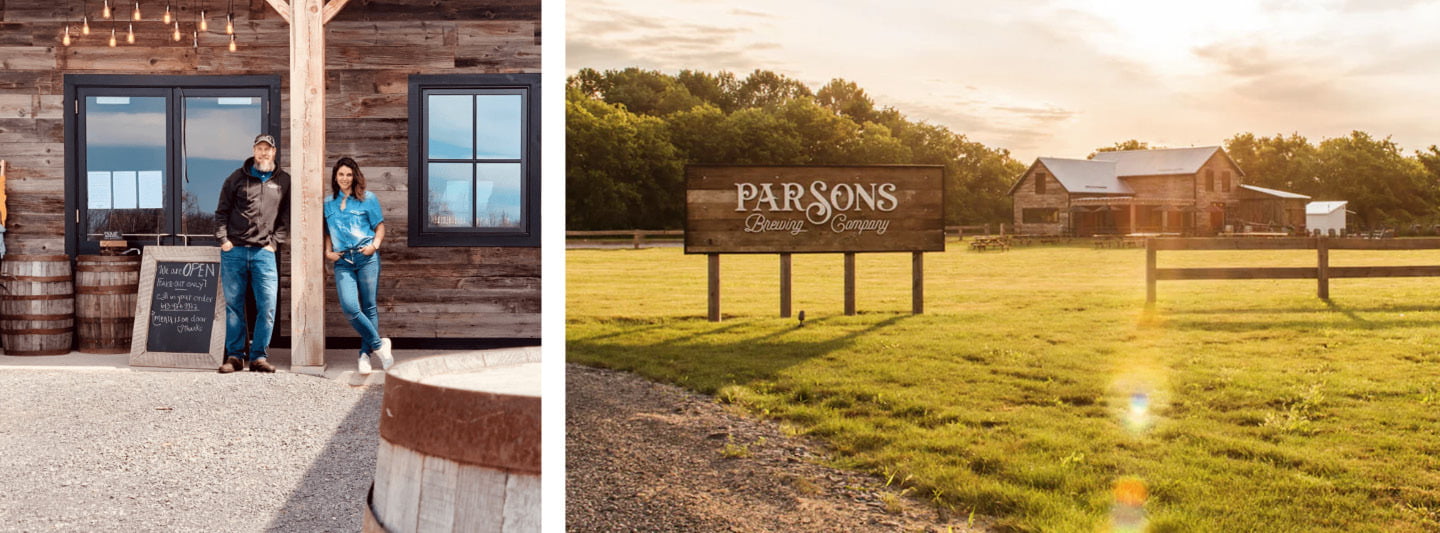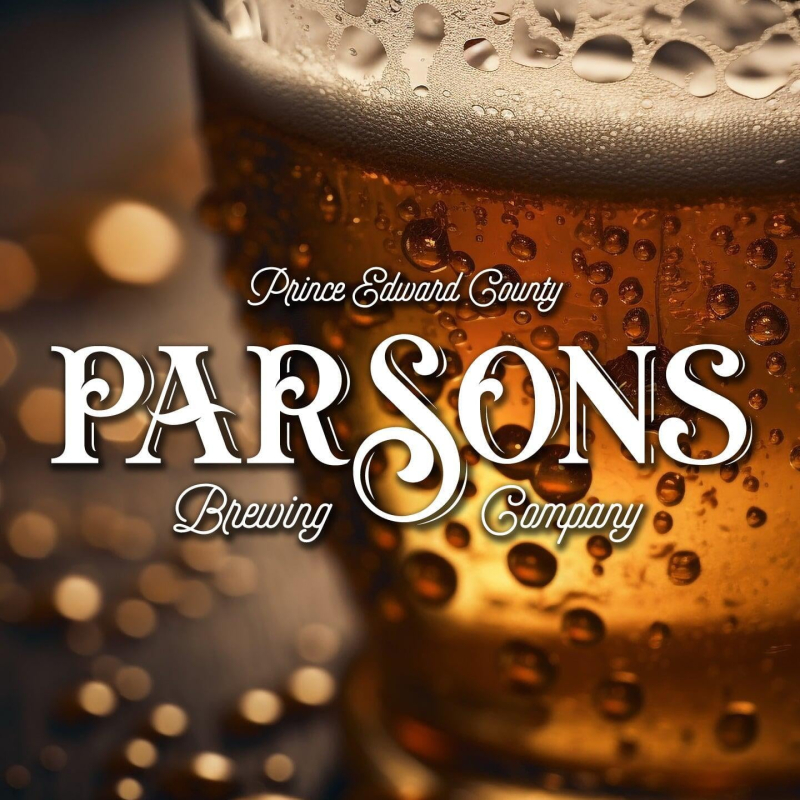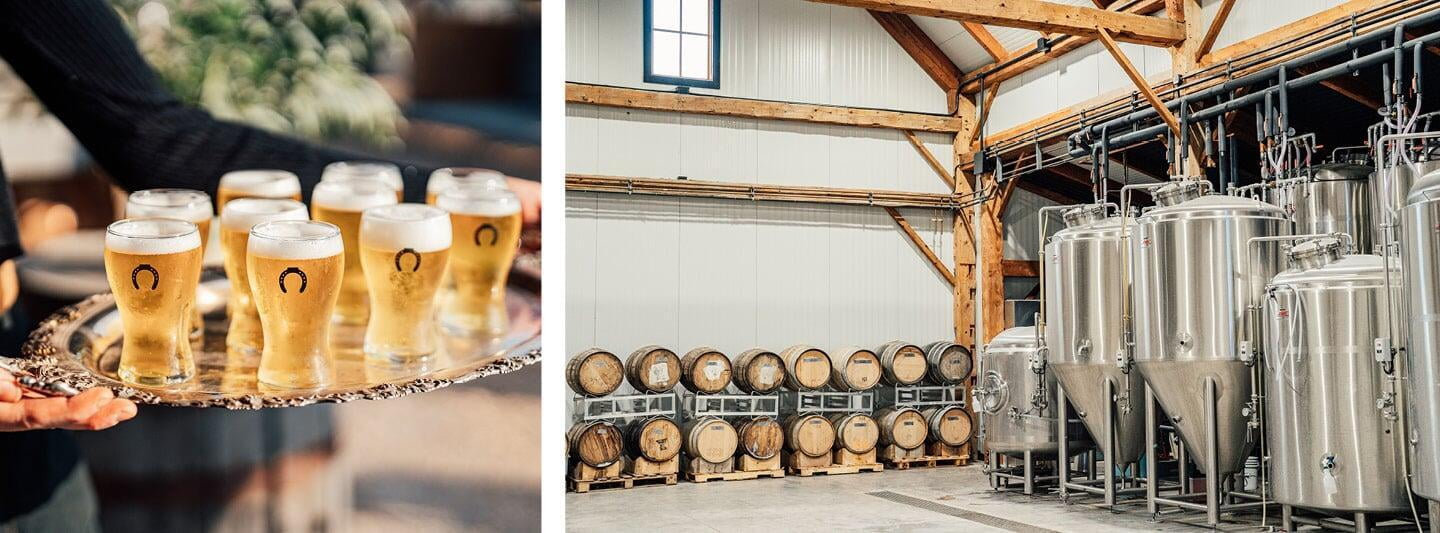They have been guided in their approach by their core mission, mandate, and philosophy as a sustainably-minded family farm brewery. To them, building community, integrating with that community and growing together as a tightly knit, co-operative, collegial, and supportive whole has always been paramount, and the reason they decided to open their farm brewery in the first place. “From day one, one of our key success drivers has been our focus on the community. We wanted to build a community hub, not just a place that makes and sells beer. We wanted to build a place where people could come, be themselves, show up and just share a good time, share a moment, share some laughter and share a good beer. The core element of who we are, which is community first, carries through everything that we do, and the way that we approached dealing with the fallout from the pandemic,” said Samantha.
“We are a family that moved to The County not necessarily to open a brewery but to a place we felt really resonated with our values, both as individuals as well as a family. We’ve approached the community aspect of our lives and our business with a lot of humbleness and pride. I think that this real focus around community has been a thread that continues to be very important to us. And even in these challenging times, when everybody is struggling, we continue to ensure that decisions are made and driven from that focus on the community.” When the first lockdowns were introduced, and people were ordered to stay home, it was just Sam, Chris and one other staff member that kept the lights of the brewery on. Sam and Chris stopped taking a salary. An investment arrived just in time from the Regional Relief and Recovery Fund (RRRF), a local community fund backed by the Government of Canada through the Federal Economic Development Agency for Southern Ontario as part of the country’s economic response to COVID-19. The trio started packaging beer up for what was now the new modus operandi for Parsons: curbside pick up and delivery across the region and, increasingly, other parts of the province, including the urban centres of Ottawa and Kingston.

The Parsons were quick to connect with other breweries, and soon they were sharing the retail space that is available within each other’s bottle shops and selling each other’s products in what Chris described as a neighbour-helping-neighbour understanding that worked. “We basically needed to shift overnight from what was a great in-person experience to packaging and logistics, which was a big undertaking. We needed to gain access quickly to packing materials and needed to figure out how long it would take to get from place to place around the area. Literally overnight we had to figure out how to be this amazing delivery agent and on-demand service while remaining connected to the local community. Our tap accounts at the restaurants dried up quickly which meant our focus became door-to-door delivery,” said Sam.
The company also began to pay a lot more attention to their online branding, marketing, and sales endeavours, added Chris. “We were doing okay with our Square Space platform, but we needed to make our online e-commerce presence more robust. We learned pretty quickly that this online sales business can be pretty huge, so we are now developing Shopify for our business. We were selling everything out of our premises, but then we couldn’t do that anymore, so where and how are we going to sell it? Developing online sales and direct deliveries is how we adapted.”
A second round of funding from the RRRF program helped Parsons through the transition phase amid on-gain, off-again lockdown measures. “Because deliveries were now a big part of the business, we had to get some new equipment, like a new fridge and new freezer. And part of that funding was to help with the accounts payable so we could bring a few staff members back to work the restaurant. You can’t just bring people back and then all of a sudden, the revenue just starts flowing. You have to bring them back first and start preparing the food, preparing the beer, making sure the place is clean and ready for people to come in,” said Chris, adding that the funding also helped continue to develop the business’s online presence, delivery processes and essentially ensure its survival, heading into a new year. Deliveries are now being expanded to Toronto and southwestern Ontario, increasing the reach of the enterprise.
“At this point in time, we’re in the business of survival. We’re still doing stuff that we’re proud of, but the pivoting that we’ve done and the changes that we’ve made, some of which we’re going to maintain after things get back to some sense of normal, are also just to keep the lights on, it’s how we can keep our in-house community, which is our team, our staff, happy, healthy, safe, and employed.”
For more information on Parsons Brewing Company click HERE



